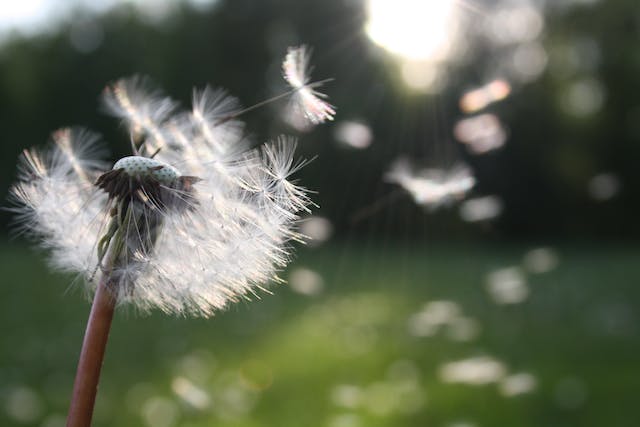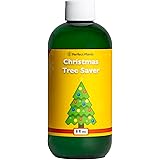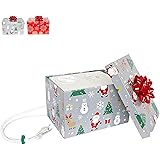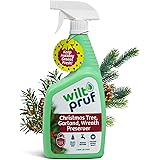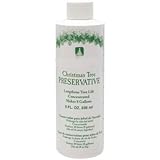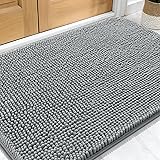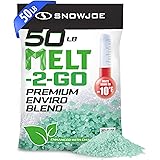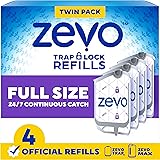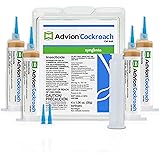Are you tired of battling stubborn dandelions in your yard? Wondering how to get rid of dandelions naturally and permanently? Well, we’ve got you covered! In this article, we will share some effective and eco-friendly methods to tackle these pesky weeds once and for all.
No need for harmful chemicals or expensive products, just simple, natural solutions that are safe for your family, pets, and the environment. Say goodbye to dandelions and hello to a beautiful, weed-free lawn. Let’s dive in and reclaim your turf!
Naturally & Permanently Remove Dandelions: Effective Tips
The Annoyance of Dandelions
Dandelions are pesky weeds that can invade your lawn or garden, making it difficult to achieve the lush, weed-free landscape you desire. Their bright yellow flowers may be pretty to look at, but their ability to spread quickly through the wind-blown seeds can turn them into a nightmare for many gardeners.
While there are chemical herbicides available to combat dandelions, not everyone wants to use potentially harmful substances on their lawns or gardens. Fortunately, there are natural and permanent methods to eliminate dandelions without resorting to harsh chemicals.
Understanding Dandelions
Before we delve into the natural methods of dandelion control, it’s important to understand these weeds and why they can be so difficult to eradicate. Dandelions belong to the Taraxacum genus and are part of the sunflower family. They have a taproot that can grow up to 10 inches deep, making it challenging to remove them entirely by hand.
Dandelions are perennials, meaning they can survive year after year. They have a life cycle that involves producing flowers, which then form seeds with the help of wind dispersal. Each dandelion seed can travel a considerable distance, allowing for the widespread colonisation of your lawn or garden.
Read More: About How Long Does Terrarium Last?
1. Manual Removal
The first step in combating dandelions naturally is to perform manual removal. Although it may be time-consuming, it is an effective way to get rid of dandelions if done consistently. Here’s how to do it:
- Use a dandelion digger tool or a small hand fork to loosen the soil around the dandelion plant.
- Grasp the dandelion as close to the base as possible and gently pull upward, making sure to remove the entire taproot.
- Place the uprooted dandelions in a bag or bucket to prevent the spread of seeds.
- Continue this process regularly, especially after rainfall when the soil is moist and makes removal easier.
2. Organic Herbicides
If manual removal isn’t enough or if you have a severe dandelion infestation, you can also turn to organic herbicides. These products are typically made from natural ingredients and are less harmful to the environment than their chemical counterparts. Here are a few organic herbicides you can consider:
Vinegar
Vinegar is a common household ingredient known for its acidic properties, making it an effective option for dandelion control. The acetic acid in vinegar can kill the dandelion plant by causing dehydration. To use vinegar as an herbicide:
- Fill a spray bottle with white vinegar, ideally with a concentration of 5% acetic acid.
- Aim the nozzle directly at the base of the dandelion plant and spray until it is thoroughly dampened.
- Repeat this process as needed, especially during dry, sunny weather for better results.
Boiling Water
Another simple and natural method to eliminate dandelions is by using boiling water. The heat from the water works to destroy the plant cells, effectively killing the dandelion. Here’s how to use boiling water as a herbicide:
- Boil a pot of water, ensuring you have enough to completely drench the dandelion plant.
- Carefully pour the boiling water directly onto the dandelion, making sure to cover the entire plant.
- Repeat this process as necessary, especially for stubborn or larger dandelions.
3. Improve Lawn and Soil Health
Preventing dandelions from taking over your lawn or garden involves creating an environment that is unfavorable for their growth. By improving the health of your lawn and soil, you can reduce the likelihood of dandelion invasion. Here are some tips to help you achieve this:
Aerate Your Lawn
Compacted soil can create the perfect breeding ground for dandelions and other weeds. Using a lawn aerator, which is a tool that removes small plugs of soil from your lawn, can help improve soil drainage and promote root health. By aerating your lawn, you provide better oxygen and nutrient availability to your grass, making it more robust and less susceptible to weed invasion.
Fertilize Properly
Maintaining a well-fertilized lawn is essential for its overall health and resilience against weeds. By supplying the right nutrients to your grass, you encourage dense growth and crowd out potential dandelions. Opt for a slow-release organic fertilizer that provides a balanced mix of nitrogen, phosphorus, and potassium to promote healthy root development and strong turf.
Mow at the Correct Height
Mowing your lawn at the correct height helps shade the soil, preventing weed seeds from germinating and competing with your grass. Set your mower’s blades to a height of around 2-3 inches for cool-season grasses and higher for warm-season grasses. Regularly mowing at the proper height will contribute to a denser turf, minimizing the space available for dandelions to establish themselves.
4. Mulching
Mulching not only enhances the aesthetics of your garden but also helps suppress weed growth, including dandelions. A layer of organic mulch, such as wood chips, straw, or shredded bark, can smother dandelion seeds and prevent them from receiving the sunlight they need to germinate. When applying mulch, follow these guidelines:
- Apply a layer of mulch around 2-4 inches thick, taking care to keep it away from the base of desirable plants.
- Ensure the mulch is free of dandelion seeds or any other weed seeds.
- Regularly replenish the mulch layer as it decomposes over time.
5. Natural Pre-emergent Herbicides
Pre-emergent herbicides are substances that prevent weed seeds from germinating. While chemical options are commonly used, there are natural alternatives available that can effectively control dandelions. These herbicides work by creating a barrier in the soil that inhibits seed germination. Some natural pre-emergent herbicides include:
Corn Gluten Meal
Corn gluten meal is a byproduct of the corn milling process and has shown promise as a natural pre-emergent herbicide. It releases organic compounds that inhibit the root development of dandelion seeds, preventing them from growing. Apply corn gluten meal to your lawn or garden following the instructions on the product label.
Herbicide with Citric Acid
Some organic herbicides containing citric acid can effectively prevent dandelion seeds from germinating without causing harm to other plants. These herbicides work by interrupting cell division in the roots of emerging weed seedlings. Follow the manufacturer’s instructions for proper application.
Getting rid of dandelions naturally and permanently requires a combination of manual removal, organic herbicides, improving lawn health, mulching, and using natural pre-emergent herbicides. By following these methods consistently, you can successfully control dandelion populations in your lawn or garden without resorting to harmful chemicals.
Remember to stay diligent and address dandelions as soon as you spot them to prevent them from spreading and becoming more challenging to eliminate. With patience and persistence, you’ll be able to enjoy a beautiful, dandelion-free landscape.
Read More: About Are Succulents Good For Terrariums?
Frequently Asked Questions (FAQs)
The best time to remove dandelions is during early spring or fall when the weeds are actively growing. At these times, the plants are more susceptible to treatment.
Yes, you can manually pull out dandelions by using a garden fork or dandelion weeder to dig deep and remove the entire taproot. Ensure you remove as much of the root as possible to prevent regrowth.
Yes, you can create a homemade dandelion killer by mixing white vinegar with water and spraying it directly onto the dandelions. The acetic acid in vinegar helps kill the weed.
Natural herbicides, such as those containing ingredients like clove oil or citrus oil, can be effective in killing dandelions. However, it may require multiple applications and proper timing for best results.
Applying organic fertilizers, such as compost or well-aged manure, can help improve soil health and promote a healthy lawn, making it less prone to dandelion infestation. Regular mowing and proper watering can also prevent dandelion growth.
Yes, pouring boiling water directly onto the dandelions can scald and kill the weeds. However, be cautious as boiling water may also harm surrounding plants and grass.
Overseeding can help fill in bare spots in your lawn, reducing opportunities for dandelions to grow. However, it should be combined with proper weed control methods to effectively manage dandelion infestation.
Final Thoughts
Dandelions can be a persistent problem in lawns and gardens, but there are natural and permanent methods to get rid of them. One effective approach is to manually remove the dandelions by digging them up from the roots. Regularly mowing the lawn at the appropriate height can also weaken dandelions and prevent their spread. Another natural solution is to use vinegar or boiling water to kill the dandelions.
Additionally, applying corn gluten meal to the lawn can inhibit dandelion growth by preventing their seeds from germinating. By following these natural methods, you can successfully eliminate dandelions from your yard and garden, naturally and permanently.
Auto Amazon Links: No products found.
Perfect Plants Christmas Tree Saver 8oz. | Easy Use Xmas Tree Preserver Food | Have Healthy Green Christmas Trees All Holiday Season
$13.99 (as of January 5, 2026 15:04 GMT +00:00 - More info- Product prices and availability are accurate as of the date/time indicated and are subject to change. Any price and availability information displayed on [relevant Amazon Site(s), as applicable] at the time of purchase will apply to the purchase of this product.
HoHoHoH2o Automatic Christmas Tree Watering System Device, Santa’s Tree Helper Keeps Your Christmas Tree Healthy and Fresh, Refillable 2.5 gallons Capacity Box - Silver/Festive
$84.95 (as of January 5, 2026 15:04 GMT +00:00 - More info- Product prices and availability are accurate as of the date/time indicated and are subject to change. Any price and availability information displayed on [relevant Amazon Site(s), as applicable] at the time of purchase will apply to the purchase of this product.
Wilt-Pruf® Christmas Tree/Cutting Preserver Spray |Preserves Christmas Trees, Wreaths, Garlands, Cuttings and Carved Pumpkins | Reduces Needle Drop | Keeps Cut Trees Fresh Longer | Natural (32 oz)
$21.99 (as of January 5, 2026 15:04 GMT +00:00 - More info- Product prices and availability are accurate as of the date/time indicated and are subject to change. Any price and availability information displayed on [relevant Amazon Site(s), as applicable] at the time of purchase will apply to the purchase of this product.
Rocky Mountain Goods Christmas Tree Food - 8 oz Tree Preservative - Reduce Needle Drop - Greener Scent - Fir, Pine, Spruce Trees - Extend Tree Life
$9.95 (as of January 5, 2026 15:04 GMT +00:00 - More info- Product prices and availability are accurate as of the date/time indicated and are subject to change. Any price and availability information displayed on [relevant Amazon Site(s), as applicable] at the time of purchase will apply to the purchase of this product.
FirEver Pure Christmas Tree Food | Preserver Additive & Season Extender for Live Xmas Trees | Keep It Green, Reduce Needle-Drop | Miracle Freshness (8 oz)
$16.66 (as of January 5, 2026 15:04 GMT +00:00 - More info- Product prices and availability are accurate as of the date/time indicated and are subject to change. Any price and availability information displayed on [relevant Amazon Site(s), as applicable] at the time of purchase will apply to the purchase of this product.
OLANLY Dog Door Mat for Muddy Paws 30x20, Absorbs Moisture and Dirt, Absorbent Non-Slip Washable Doormat, Quick Dry Chenille Mud Mat for Dogs, Entry Indoor Entryway Carpet for Inside Floor, Grey
$9.99 (as of January 5, 2026 18:53 GMT +00:00 - More info- Product prices and availability are accurate as of the date/time indicated and are subject to change. Any price and availability information displayed on [relevant Amazon Site(s), as applicable] at the time of purchase will apply to the purchase of this product.
TERRO Ant Killer Bait Stations T300B - Liquid Bait to Eliminate Ants - Bait System - 12 Count Stations for Effective Indoor Ant Control
$10.88 (as of January 5, 2026 18:53 GMT +00:00 - More info- Product prices and availability are accurate as of the date/time indicated and are subject to change. Any price and availability information displayed on [relevant Amazon Site(s), as applicable] at the time of purchase will apply to the purchase of this product.
Snow Joe Premium Enviro Blend Ice Melt, Green-Coated Deicer Crystals, 50 lb - Safer Melter for Vegetation, Concrete & Metals w/ Anti-Corrosion Calcium Magnesium Acetate
$32.97 (as of January 5, 2026 18:53 GMT +00:00 - More info- Product prices and availability are accurate as of the date/time indicated and are subject to change. Any price and availability information displayed on [relevant Amazon Site(s), as applicable] at the time of purchase will apply to the purchase of this product.
Zevo Flying Insect Trap Official Refill Cartridges - Fits Both Zevo Trap & MAX Indoor Fly Trap - Authentic Trap+Lock Technology to Catch Gnats, House & Fruit Flys (4 Official Refill Cartridges)
$14.82 (as of January 5, 2026 18:53 GMT +00:00 - More info- Product prices and availability are accurate as of the date/time indicated and are subject to change. Any price and availability information displayed on [relevant Amazon Site(s), as applicable] at the time of purchase will apply to the purchase of this product.
Advion Cockroach Gel Bait, 4 Tubes x 30-Grams, 1 Plunger and 2 Tips, German Roach Insect Pest Control, Indoor and Outdoor Use, Roach Killer Gel for American, German and Other Major Cockroach Species
$25.92 (as of January 5, 2026 18:53 GMT +00:00 - More info- Product prices and availability are accurate as of the date/time indicated and are subject to change. Any price and availability information displayed on [relevant Amazon Site(s), as applicable] at the time of purchase will apply to the purchase of this product.

